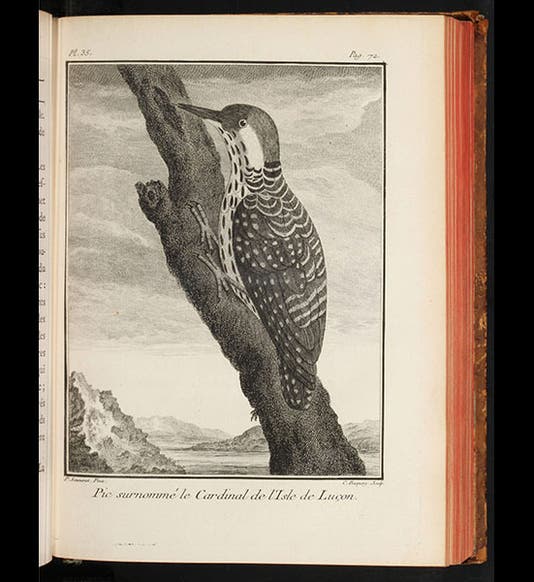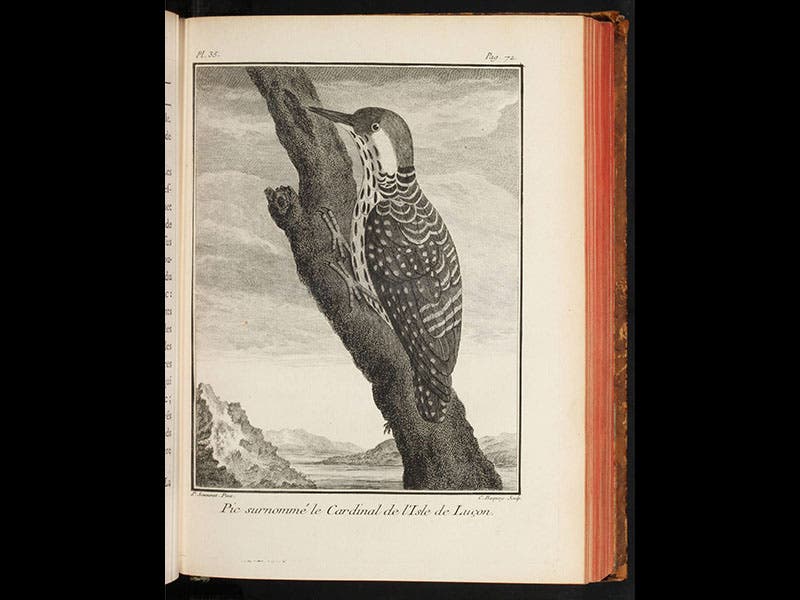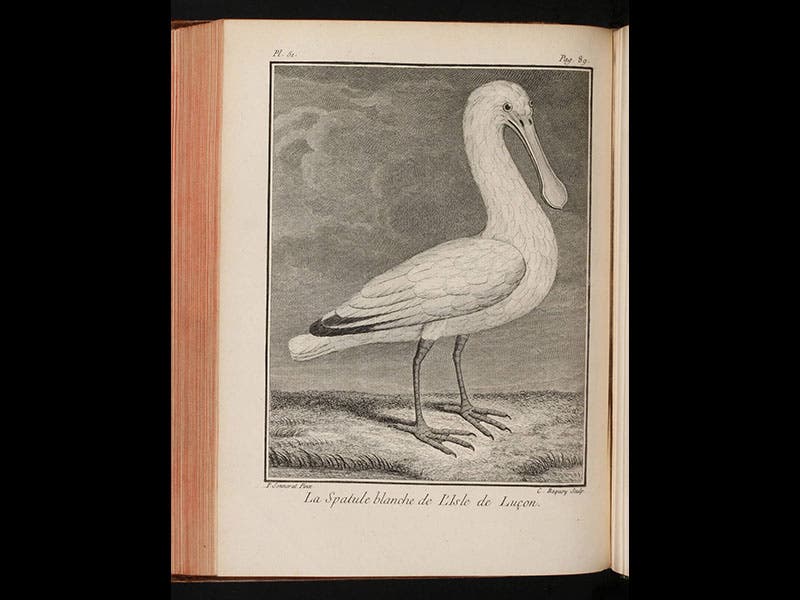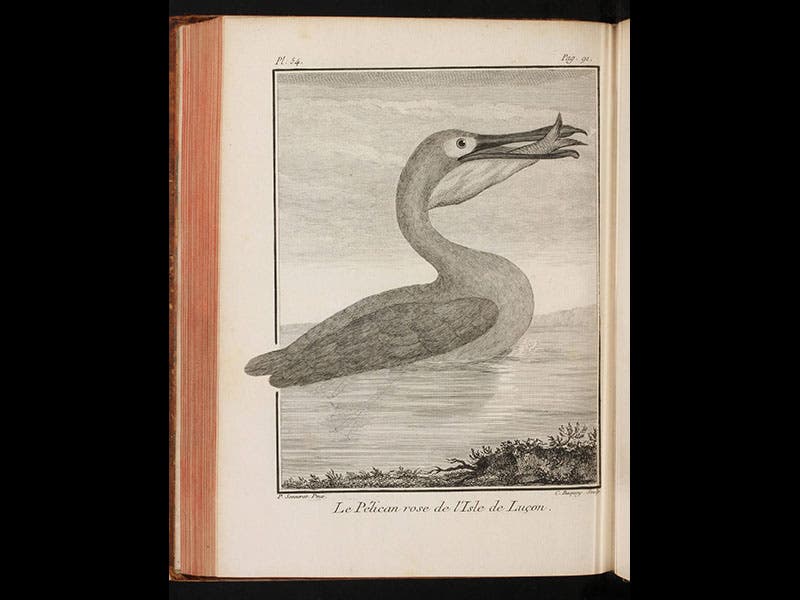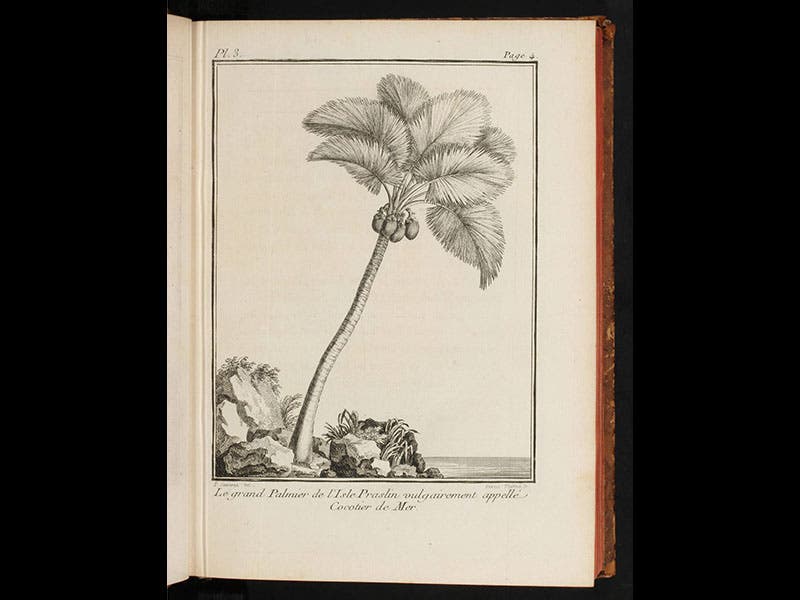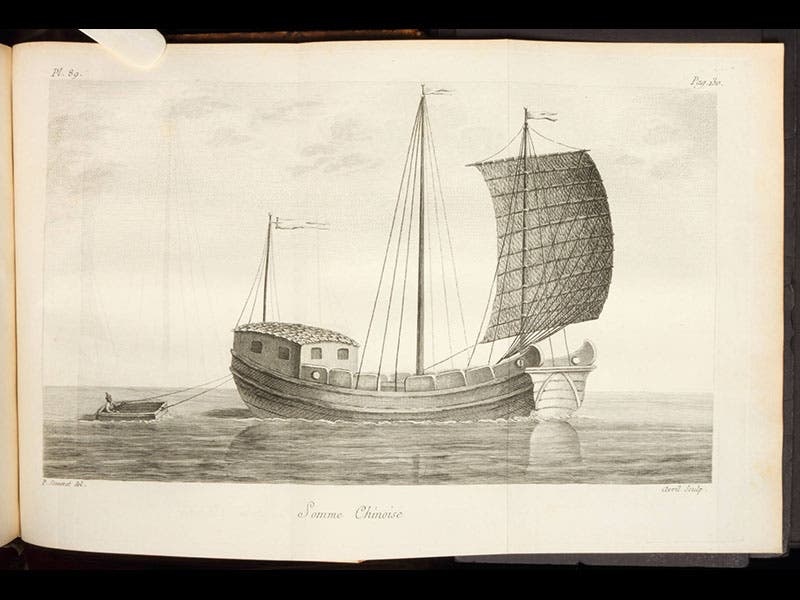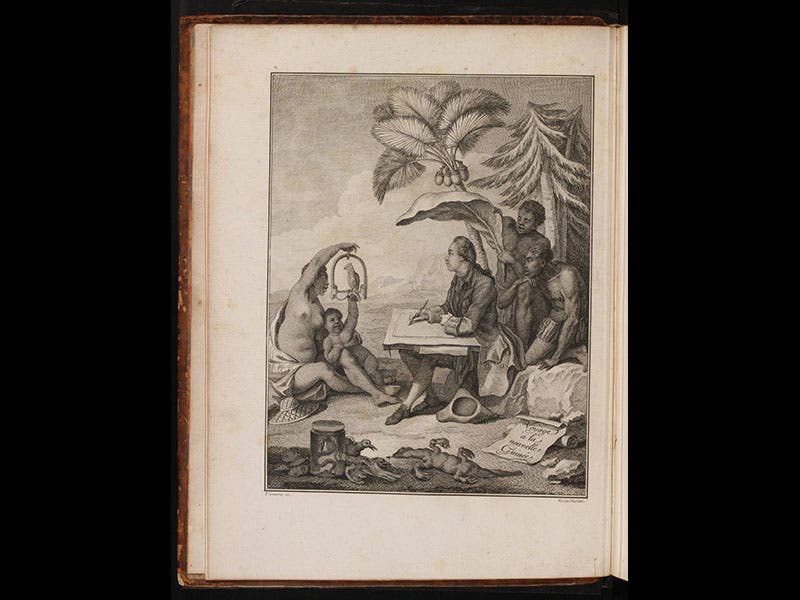Scientist of the Day - Pierre Sonnerat
Pierre Sonnerat, a French explorer and naturalist, was born Aug. 18, 1748. Between 1769 and 1772, Sonnerat made a voyage to Madagascar, the Seychelles, the Philippines, and New Guinea, discovering many new plants, birds, and mammals during his travels. He is best noted for his discovery and naming of a large lemur in Madagascar. A native pointed the animal out to Sonnerat and said “Indri”, or “look there” in the local dialect. Sonnerat thought he was being provided with the animal’s local name, and called it an Indri. And Indri it remains today—in fact, Linnaean style, it is Indri indri, doubly compounding the misdemeanor.
Sonnerat published a sumptuous narrative of his travels, Voyage a la Nouvelle-Guinée (1776), which we have in the History of Science Collection at the Library. It is illustrated with 120 full-page engravings based on drawings that Sonnerat did himself. So we see above three birds from the Philippines: a cardinal woodpecker, a spoonbill, and rosy pelican; a Coco-de-mer palm from the Seychelles, and a Chinese junk that he encountered somewhere in the Indian Ocean. The book contains no image, alas, of the charming indri.
The frontispiece, the last image above, depicts Sonnerat sketching in the field, fanned by natives wielding palm-fronds. It is not exactly a politically-correct illustration these days, with its suggestion of European superiority, but it is a pretty accurate portrayal, not only of Sonnerat, but of eighteenth-century European colonial attitudes toward native peoples.
Dr. William B. Ashworth, Jr., Consultant for the History of Science, Linda Hall Library and Associate Professor, Department of History, University of Missouri-Kansas City. Comments or corrections are welcome; please direct to ashworthw@umkc.edu.

